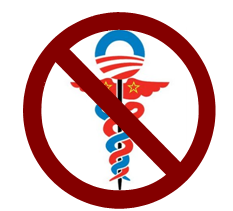
It’s a tough time to be Barack Obama’s No. 1 apologist. The president’s policies aren’t working, his public support has evaporated and his party was roundly rebuked in the 2014 mid-term elections. Yet New York Times columnist Paul Krugman soldiers on — inextricably tied to the terminal velocity of Obama’s ongoing ideological implosion (which continues to drag down the U.S. economy with it).
Like Hiroo Onada — the Imperial Japanese soldier who continued fighting World War II well into the mid-1970s — Krugman has lost. The only question is whether he’ll ever admit it.
The liberal economist’s latest demonstrably dishonest fabrication seeks to spare Obama’s socialized medicine monstrosity from its looming date with the U.S. Supreme Court — specifically a case that’s capable of upsetting the administration’s ever-evolving command economic apple cart.
Last week, the Court agreed to hear King v. Burwell — a case which exposes a fatal flaw in Obama’s signature legislation. When Obamacare was drafted, the law’s health care subsidies (and the taxes collected to pay for them) were explicitly confined to those states establishing their own health care exchanges. That’s not a statement of opinion, either, it’s written in black and white right there in the law — which expressly limits such subsidies to qualified plans enrolled “through an exchange established by the State.”
Nowhere in Obamacare is there any mention of subsidies being provided (or taxes collected) via a federally established exchange. Despite this, the Internal Revenue Service has taken it upon itself to extend the law in such a manner. Why? Because without tax revenue from the thirty-six states that refused to establish exchanges, Obamacare is dead in the water.
According to Krugman, King v. Burwell is a “frivolous attack on Obamacare” — one resulting from “sloppy language” that he equates to an “obvious typo” on the part of its authors. Furthermore he accuses federal judges who have upheld the law (as it is written) of being “corrupt” and “willing to pervert the law to serve political masters.”
“Pervert the law?” That’s a curious interpretation seeing as Krugman wants the judiciary to completely ignore Obamacare’s explicit language and allow a $700 billion tax hike on states that expressly rejected setting up exchanges.
Finally, in a not-so-thinly-veiled threat to the Supremes, Krugman says, “we’ll find out in the months ahead … how deep the corruption goes.”
Such menacing hyperbole might be excusable were it not for the unambiguous and oft-stated intent of this specific language — which Krugman conveniently omits from his article.
There was no innocent mistake in the drafting of Obamacare — there was a fatal conceit built into its underlying political assumptions. The law was written precisely as its architects envisioned — operating under the belief that states would be incapable of resisting the allure of more “free money” from Washington, D.C.
“What’s important to remember politically about this is if you’re a state and you don’t set up an Exchange, that means your citizens don’t get their tax credits,” Obamacare co-author Jonathan Gruber said in January 2012.
Gruber, of course, is the same official who recently hailed the “stupidity of the American voter” for Obamacare’s passage.
“I hope that’s a blatant enough political reality that states will get their act together and realize there are billions of dollars at stake here in setting up these Exchanges, and that they’ll do it,” Gruber continued.
For this reason, in addition to its statutory language, Obamacare provided unlimited funding for the creation of state-run exchanges — yet no funding for federally run exchanges. On top of that, Obamacare proponents in the U.S. Senate — sensitive to charges that they were launching a federal “takeover” of health care — expressly noted prior to law’s passage that “all the health insurance exchanges … (would be) run by states.”
The state-run clause was no “typo,” in other words, it was a key selling point of the law — not to mention a deliberate inducement for states to take the specific action the administration desired (i.e. establishing the state-run exchanges).
The bribe didn’t work, though. Only fourteen states took the bait. And now that Obama and his allies are being held to the letter of the law — which could now collapse under the weight of this faulty assumption — Krugman has been dispatched to explain the whole thing away as a clerical error.
It’s not. Which is why the Supreme Court’s only option is to rule in favor of the petitioners and strike down the law’s taxes and subsidies in the thirty-six states that did not establish their own exchanges.
The author is a board member of Americans for Limited Government.







